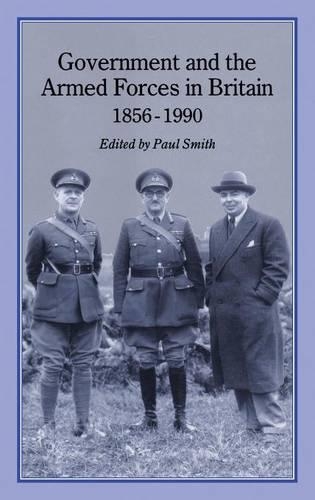
Government and Armed Forces in Britain, 1856-1990
(Hardback)
Publishing Details
Government and Armed Forces in Britain, 1856-1990
By (Author) Paul Smith
Bloomsbury Publishing PLC
Hambledon Continuum
1st June 2006
United Kingdom
Classifications
Tertiary Education
Non Fiction
Central / national / federal government policies
355.00941
Physical Properties
Hardback
344
Width 156mm, Height 234mm
300g
Description
In a period that began with Britain controlling a worldwide empire and included two world wars, followed by the Cold War and massive expenditure on nuclear armaments, the relationship between the politicians and the generals has been central to British history. While it is correctly assumed that the Armed Forces have never threatened British political stability in modern times, the relationship between the military and their political masters is a major theme of British history. While in the theory the politicians decided strategy and the military implemented it, in practice decisions often depended on the personalities and experience of those involved. Asquith, the epitome of the civilian, left major strategic decisions in the hands of the military; while Churchill, an ex-soldier and ex-First Lord of the Admiralty, rode roughshod over professional military advice. In a period when arms became ever more technologically sophisticated, there was also the problem of how far politicians could decide on strategies proposed by the military other than by the crude yardstick of cost.
